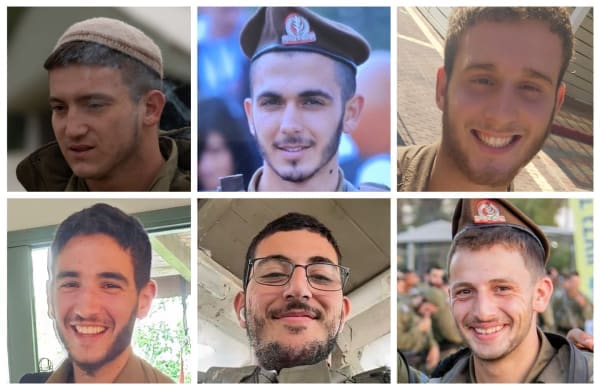Staff Sgt. Sraya Elboim, Sgt. Shalev Itzhak Sagron, Sgt. Yoav Daniel; Bottom, left to right: Staff Sgt. Dror Hen, Staff Sgt. Nir Gofer, Cpt. Itay Marcovich
Wednesday evening, the IDF Spokesman’s office announced the names of six soldiers from the Golani Brigade who were killed during combat in southern Lebanon earlier that day.
Support authors and subscribe to content
This is premium stuff. Subscribe to read the entire article.
Login if you have purchased
